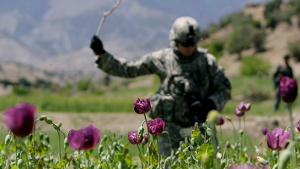Event Date:
Event Date Details:
Event Location:
- SSMS 3145
Anila Daulatzai,
Political and Medical Anthropologist, affiliated with UC Berkeley and UC Santa Cruz
Opiate Kinship: Forever Wars and Life that Remains in Kabul, Afghanistan
A young man leaning against a wall in the former Soviet Cultural Center in Kabul, then a heroin shooting gallery, describes how he lost his father and two brothers to the war(s). He uses local kinship terms to describe his relationship to heroin – ‘Heroin became my father, it became my brother. It is my friend’. In another part of Kabul, a woman, widowed in her mid-thirties, turned to heroin after the death of her young child due to a bomb blast, and her husband’s death shortly thereafter. When I asked her how her husband died, she told me that ‘he died directly after he had just used heroin, so they say he died from a heroin overdose. I think he died as a result of the haalat (condition, situation) of Afghanistan’. This paper will explore the intersections of racialized, gendered, religious, medicalized and imperial subjectivities and the nexus of two of the forever wars waged by the US - the War on Drugs and the War in Afghanistan (as part of the ‘Global War on Terror’).
Anila Daulatzai is a political and medical anthropologist, currently affiliated with UC Berkeley and UC Santa Cruz. She has taught in prisons, and in universities across three continents. She has been conducting research in Afghanistan as well as with Afghan refugees in Pakistan for more than two decades. Between 2006 and 2013 she carried out ethnographic fieldwork in Kabul and taught at Kabul University and at the American University of Afghanistan. Her past and current research projects look at widowhood, heroin use, and polio through the lens of serial war in Afghanistan. She has published articles in Jadaliyya, Al-Jazeera, several academic journals, and is a contributing member to Brown University’s Costs of War Project, since 2014. She is currently completing her book manuscript provisionally titled War and What Remains. Everyday Life in Contemporary Kabul, Afghanistan.

